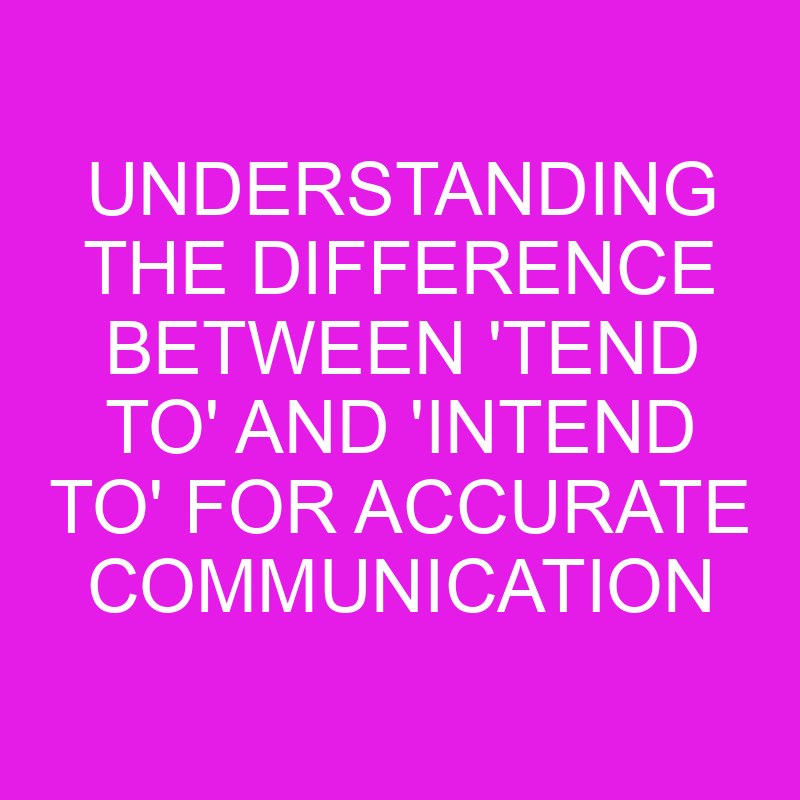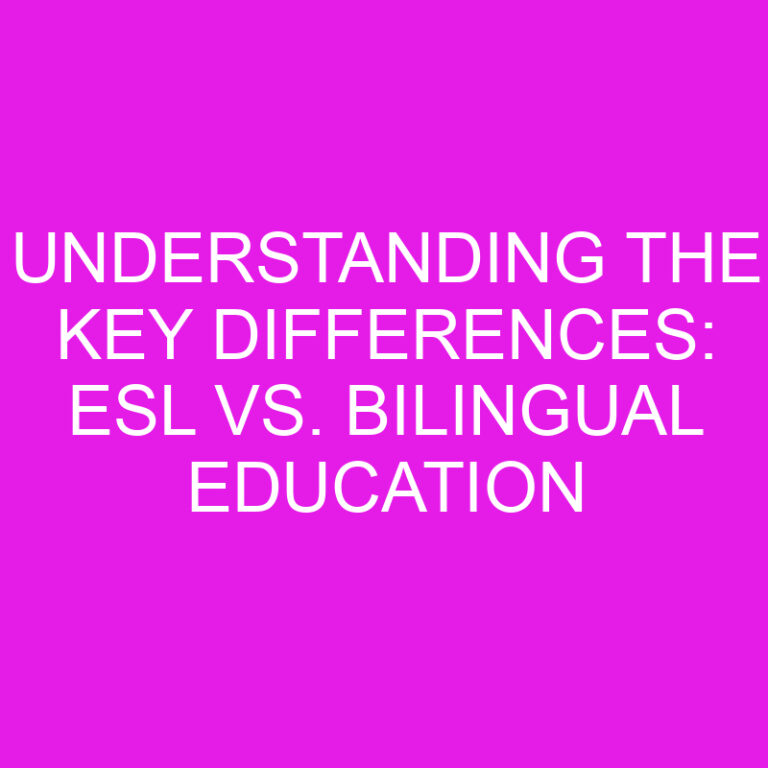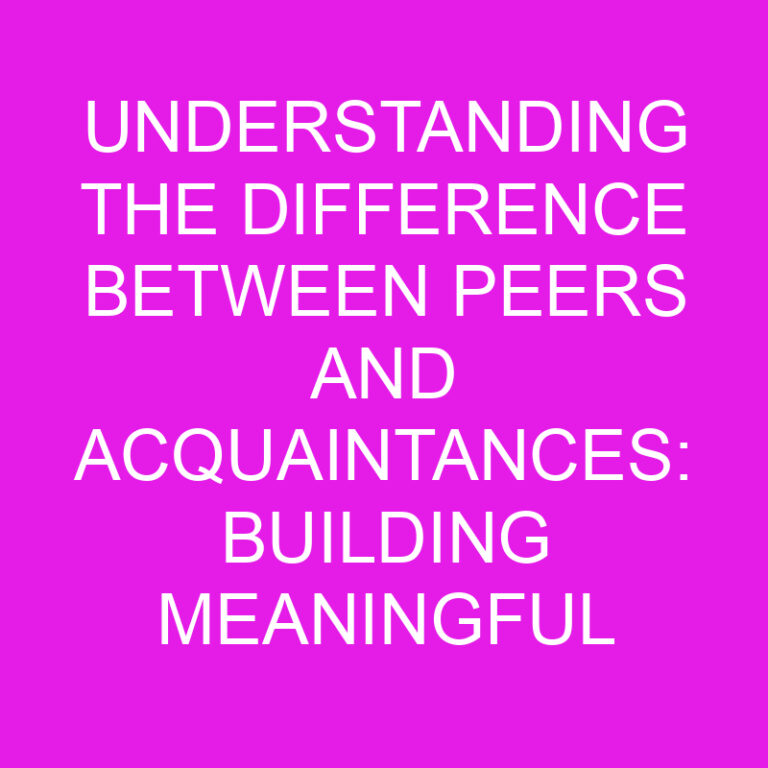
Hey there! Have you ever found yourself confused between the phrases “tend to” and “intend to”? Well, you’re not alone! Many people get tripped up by these two similar-sounding expressions, but fear not, because I’m here to shed some light on the difference between them.
When we say “tend to,” we’re talking about a general tendency or likelihood of something happening. It implies a natural inclination or a pattern of behavior. On the other hand, “intend to” refers to a deliberate plan or purpose. It suggests that you have a specific intention or goal in mind.
Post Contents
Key Takeaways
- “Tend to” refers to a general tendency or likelihood based on past experiences, while “intend to” conveys a deliberate intention or conscious planning.
- “Tend to” suggests a natural inclination or pattern of behavior, whereas “intend to” signifies a specific goal or purpose.
- “Tend to” does not imply any deliberate intention, while “intend to” emphasizes active participation and intentionality.
- “Tend to” is based on observations and indicates a general trend, while “intend to” highlights personal goals, future plans, or commitments.
- The usage of “tend to” can indicate variability in degree, whereas “intend to” underscores determination and focus.
- “Tend to” and “intend to” have distinct meanings and implications, and it is essential to understand their differences for accurate communication.
What is “tend to”?
“Tend to” is a phrase that is commonly used to describe a general tendency or likelihood of something happening. It indicates a natural inclination or predisposition towards a particular action or outcome. When we say that something tends to happen, we mean that it is more probable or expected to occur, but it does not imply a deliberate plan or purpose.
Here are a few key points to understand about the phrase “tend to”:
- General likelihood: When we use “tend to,” we are talking about patterns or trends that are commonly observed. It suggests a consistency or regularity in how certain things occur or behave. For example, we might say, “I tend to get hungry in the afternoon,” indicating that it is a common occurrence for us to feel hungry during that time.
- Not a deliberate intention: Unlike “intend to,” which implies purpose and conscious planning, “tend to” does not suggest any deliberate intention behind the action. It is more about an inherent tendency or inclination. For instance, when someone says, “Children tend to be curious,” it means that curiosity is a natural trait commonly observed in children, not something they intentionally choose.
- Based on observations: The usage of “tend to” is typically based on past experiences or observations. It is a statement made to express a general observation or trend. For example, we might say, “People tend to feel happier on sunny days,” drawing from our observation that sunny weather often correlates with improved mood.
- Variability in degree: The degree to which something tends to happen can vary. It could indicate a strong or weak tendency, depending on the context. For example, we might say, “He tends to be forgetful,” implying that forgetfulness is a frequent trait but not an absolute characteristic.
Overall, “tend to” is a phrase used to describe the general likelihood or tendency of something happening, without implying any deliberate intention or conscious planning behind it. It is a way of expressing observed patterns or trends in various aspects of life.
Now that we have a clear understanding of what “tend to” means, let’s take a closer look at the phrase “intend to” in the next section.
What is “intend to”?
“Intend to” is a phrase that conveys a deliberate intention or conscious planning. It indicates a specific goal or purpose that someone has in mind. When using “intend to,” I am referring to my own thoughts, desires, or objectives.
Unlike “tend to,” which refers to a general likelihood or tendency of something happening based on past experiences or observations, “intend to” implies a more intentional and purposeful action. It signifies that I have a clear intention to carry out a specific task or achieve a particular outcome.
For example, if I say, “I intend to start a new business,” it means that I have a well-thought-out plan and a strong desire to pursue entrepreneurship. I am committed to taking the necessary steps to make it happen.
The phrase “intend to” is often used when discussing personal goals, future plans, or commitments. It highlights a mindset of determination and focus. Whether it’s pursuing a career, completing a project, or making a change in my life, “intend to” emphasizes my active participation and intentionality in achieving those goals.
It’s essential to note that while “intend to” indicates a conscious decision, it doesn’t guarantee that the intended action will be carried out. Factors may arise that can hinder or alter the outcome. However, the use of “intend to” underscores the importance of my intention and the effort I am willing to put in to achieve my goals.
How are “tend to” and “intend to” different?
When it comes to discussing actions or plans, it’s crucial to understand the differences between the phrases “tend to” and “intend to.” While they may seem similar, they convey distinct meanings and implications. Let’s dive into the nuances of each phrase:
- “Tend to”: This phrase refers to a general likelihood or tendency based on past experiences. It suggests that an action or outcome is more likely to happen but doesn’t guarantee it. For example, I might say, “I tend to get tired in the evenings.” This means that based on my previous experiences, it is more likely for me to feel tired during that time. However, it doesn’t imply that I will always be tired in the evenings.
- “Intend to”: On the other hand, “intend to” conveys a deliberate intention or conscious planning, indicating a specific goal or purpose. When someone says, “I intend to start exercising more,” they are expressing their determination and focus towards that particular goal. Unlike “tend to,” “intend to” implies a more intentional and purposeful action.
To summarize, “tend to” suggests a general tendency or likelihood based on past experiences, while “intend to” indicates a conscious decision and commitment towards a specific goal or action. While both phrases have their place in conversation, it’s important to understand the subtle differences to convey your intentions accurately.
Now that we have examined the distinctions between “tend to” and “intend to,” let’s explore some examples of how these phrases can be used in different contexts.
Examples of using “tend to” and “intend to”
When it comes to understanding the difference between “tend to” and “intend to,” examples can help clarify the nuances. Let’s take a look at how these two phrases are used in different contexts:
- “Tend to”:
- When talking about habits or general inclinations:
- “I tend to procrastinate before starting a new project.”
- “He tends to get angry when things don’t go his way.”
- “They tend to spend their weekends at the beach.”
- To express a general likelihood or probability:
- “It tends to rain a lot in this area during the summer months.”
- “People tend to become more forgetful as they get older.”
- “Children tend to learn languages more quickly than adults.”
- “Intend to”:
- When indicating a deliberate intention or conscious planning:
- “I intend to start my own business in the near future.”
- “She intends to save up enough money to travel the world.”
- “They intended to volunteer at the local shelter to help the community.”
- To express a specific goal or purpose:
- “He intends to study medicine and become a doctor.”
- “We intend to finish the project before the deadline.”
- “I intended to call you, but I got caught up in a meeting.”
By examining these examples, it becomes clear that “intend to” implies a more intentional and purposeful action, while “tend to” refers to general likelihood or tendency based on past experiences. Understanding the distinction between these two phrases is crucial to effectively communicate intentions and expectations.
Keep in mind that even though someone may intend to do something, it doesn’t guarantee that the intended action will be carried out. Intentions can change, and external factors may influence the outcome. However, acknowledging the difference between “tend to” and “intend to” allows for more accurate and precise communication.
Let’s further explore the various ways these phrases can be used and the impact they have on conveying intentions in the next section.
Conclusion
Understanding the difference between “tend to” and “intend to” is crucial for effective communication. While both phrases express some form of future action, they convey distinct meanings and intentions.
“Tend to” refers to habits, inclinations, or general likelihoods. It suggests a high probability of something happening based on past behavior or patterns. For example, “I tend to wake up early on weekends.”
On the other hand, “intend to” indicates a deliberate intention or conscious planning. It implies a specific goal or purpose. For instance, “I intend to finish this project by the end of the week.”
Recognizing these nuances allows us to express ourselves accurately and precisely. However, it’s important to note that intending to do something doesn’t guarantee it will happen. External factors or unforeseen circumstances may prevent us from carrying out our intentions.
By grasping the distinctions between “tend to” and “intend to,” we can enhance our communication skills and ensure our messages are clear and understood. So, next time you’re expressing your intentions, remember to choose the right phrase to convey your meaning effectively.
Frequently Asked Questions
Q: What is the difference between “tend to” and “intend to”?
A: “Tend to” is used to describe habits or general inclinations, while “intend to” indicates deliberate intention or conscious planning.
Q: When do we use “tend to”?
A: “Tend to” is used to express general likelihood or probability, as well as to talk about habits or inclinations.
Q: When do we use “intend to”?
A: “Intend to” is used to express specific goals or purposes, as well as deliberate intentions or conscious planning.
Q: Are the intended actions always carried out?
A: No, even if someone intends to do something, it doesn’t guarantee that the intended action will be carried out.
Q: Why is it important to understand the difference between “tend to” and “intend to”?
A: Understanding these nuances allows for more accurate and precise communication, ensuring intentions are conveyed correctly.






